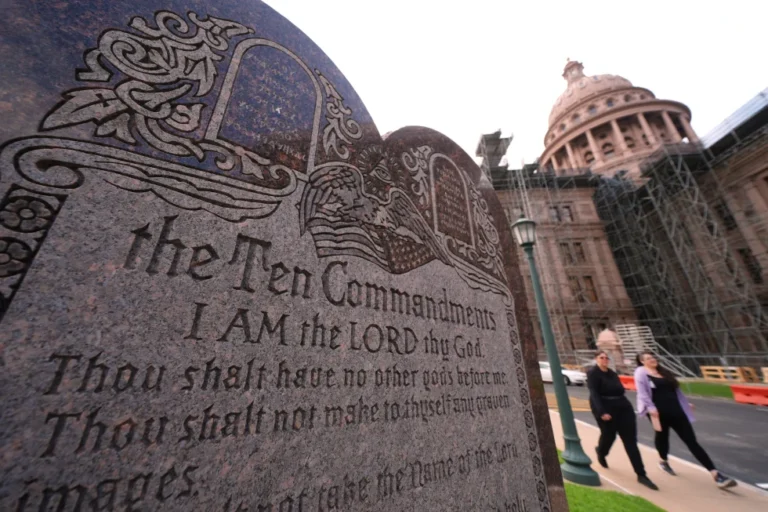Texas has passed a new law requiring the Ten Commandments to be displayed in every public school classroom. Governor Greg Abbott signed the bill, making Texas the largest state to adopt this type of religious mandate in public education.
The law mandates that a framed copy or poster of the Ten Commandments must be posted in a visible spot in every classroom. Each display must measure at least 16 by 20 inches and use a specific English version of the text. The requirement applies to all 9,100 public schools across the state, serving nearly six million students.
Supporters say this measure reflects values that helped shape the country’s legal and educational systems. They argue that the Ten Commandments are not just religious symbols but historical references tied to American heritage.
Republican lawmakers backed the bill strongly during the latest legislative session, which ended on June 2. Representative Candy Noble, a co-sponsor, said the aim is to highlight materials that are important historically and educationally.
Critics, however, argue that the law violates the principle of separation between church and state. They believe the classroom is not the right place for religious instruction or symbols.
A coalition of faith leaders, including Christians and Jews, sent a letter to Texas lawmakers earlier this year. They warned that the law could alienate students from other religions who may not recognize or follow the Ten Commandments. They also noted that public schools must be inclusive of students from all backgrounds.
Legal experts expect the new law to face major court challenges. A similar law in Louisiana was blocked recently. Federal courts have twice ruled that Louisiana’s law is unconstitutional. In both cases, judges found that the law promotes one religious viewpoint, which public schools are not allowed to do.
Texas Attorney General Liz Murrell has said she is ready to defend the new law. If challenged, she is willing to take the case all the way to the U.S. Supreme Court.
Governor Abbott has a long history of defending religious displays in public spaces. In 2005, as Texas attorney general, he successfully argued before the Supreme Court that the state could keep a Ten Commandments monument on Capitol grounds. That case played a major role in shaping current legal debates about religion in public settings.
In addition to the Ten Commandments law, Governor Abbott also signed another measure that allows school districts to provide a daily voluntary period for prayer or reading religious texts. This period would be available to both students and staff during school hours.
These new laws are part of a broader trend in conservative-led states where efforts to promote religious expression in public schools are growing. Lawmakers in other states have introduced similar measures in recent years.
Still, opposition remains strong among civil rights groups and religious freedom advocates. They argue that public schools should not force or promote any one religious belief. They also fear that such laws could lead to more division among students and families of different faiths.
The coming months are likely to bring legal action, with courts once again asked to decide how far states can go in mixing religion with public education. Until then, Texas schools are preparing for the changes that will take effect soon.







